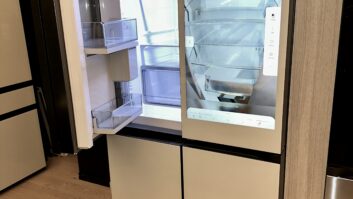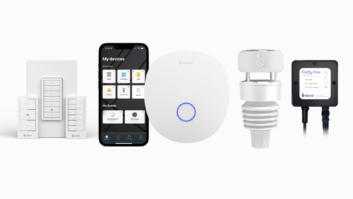Washington – The Federal Communications Commission (FCC) will decide
on April 7 whether to ban cellular signal boosters or regulate them to prevent
cell-site interference.
Last
year, the FCC launched an inquiry into the devices following requests by
CTIA, booster maker Wilson Electronics and others.
Signal boosters extend a cellphone’s range in the car or home in
areas where cellular signal strength is weak.
Booster maker Wi-Ex said it is optimistic that boosters will
remain legal. “Based on our numerous briefings, we are optimistic that
the ruling will allow boosters that protect the carrier network to continue to
be sold legally,” a spokesperson said.
The CTIA, however, contended in a filing last year that unauthorized
or “inappropriately installed” signal boosters cause interference in cellular
carriers’ networks. CTIA asked the FCC to “clarify that the sale or use of signal boosters without appropriate
CMRS [commercial mobile radio service] licensee consent is unlawful.”
Taking an opposing view, PCIA-The Wireless Infrastructure
Association asked the FCC to “explore the best methods of resolving
interference issues without resorting to regulations that unnecessarily inhibit
the sale and installation of signal boosters, such as requiring prior licensee
consent, or hinder market innovations.”
For its part,
of St. George, Utah, contended in a filing last year that “well-designed
and -engineered signal boosters actually benefit not only wireless customers
but the carriers as well.” To ensure the boosters are well-designed, Wilson
asked the FCC to adopt three standards for approving signal boosters during
routine certification.
The FCC, Wilson said, should require all signal boosters to feature:
–effective self-oscillation (feedback) detection and automatic
shutdown;
–effective cell tower proximity
detection and automatic shutdown to prevent cell-site overloads; and
-bi-directional (tower-to-device
and device-to-tower) signal amplification.
Feedback detection and automatic shutdown would prevent inaudible
RF-noise-generating over-modulation that “can knock a tower down,” the company
said. Proximity detection would prevent ambient noise from being amplified when
close to a cell site to such an extent that it drowns out other calls made
through the site, reducing a cell site’s capacity.
For best user satisfaction, two-way amplification should be
required, the company added. Some signal boosters only amplify incoming
signals, not outgoing transmission.













